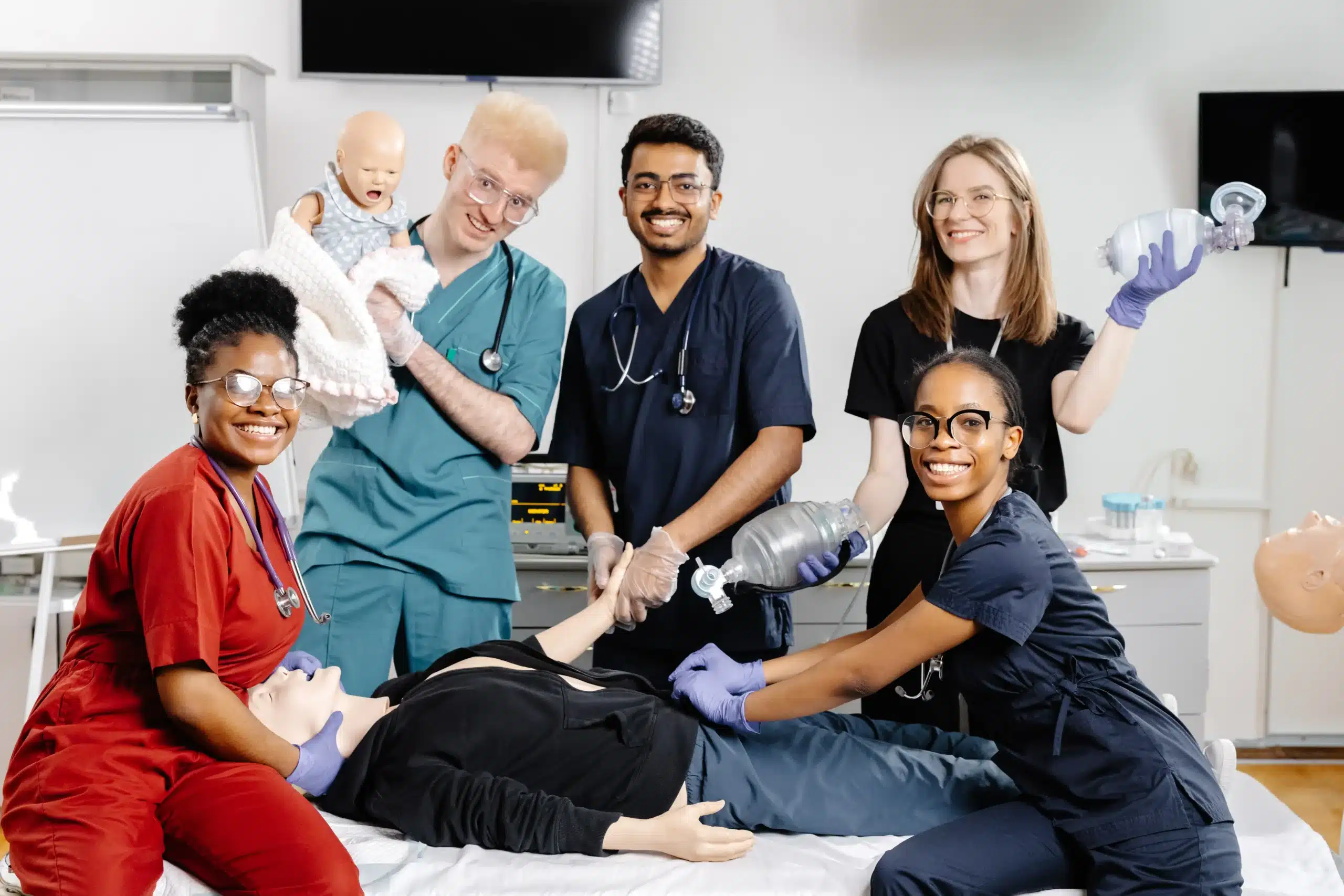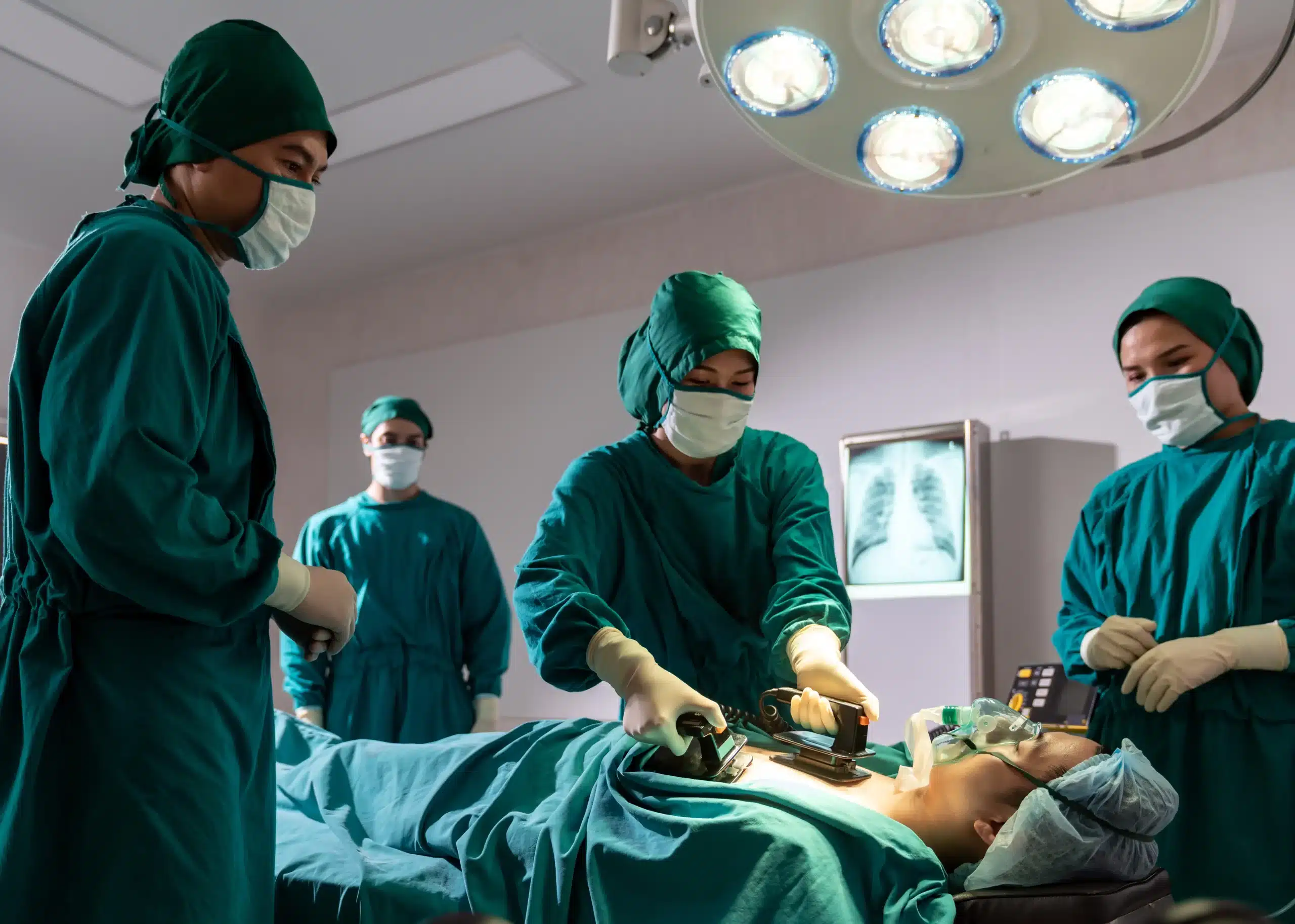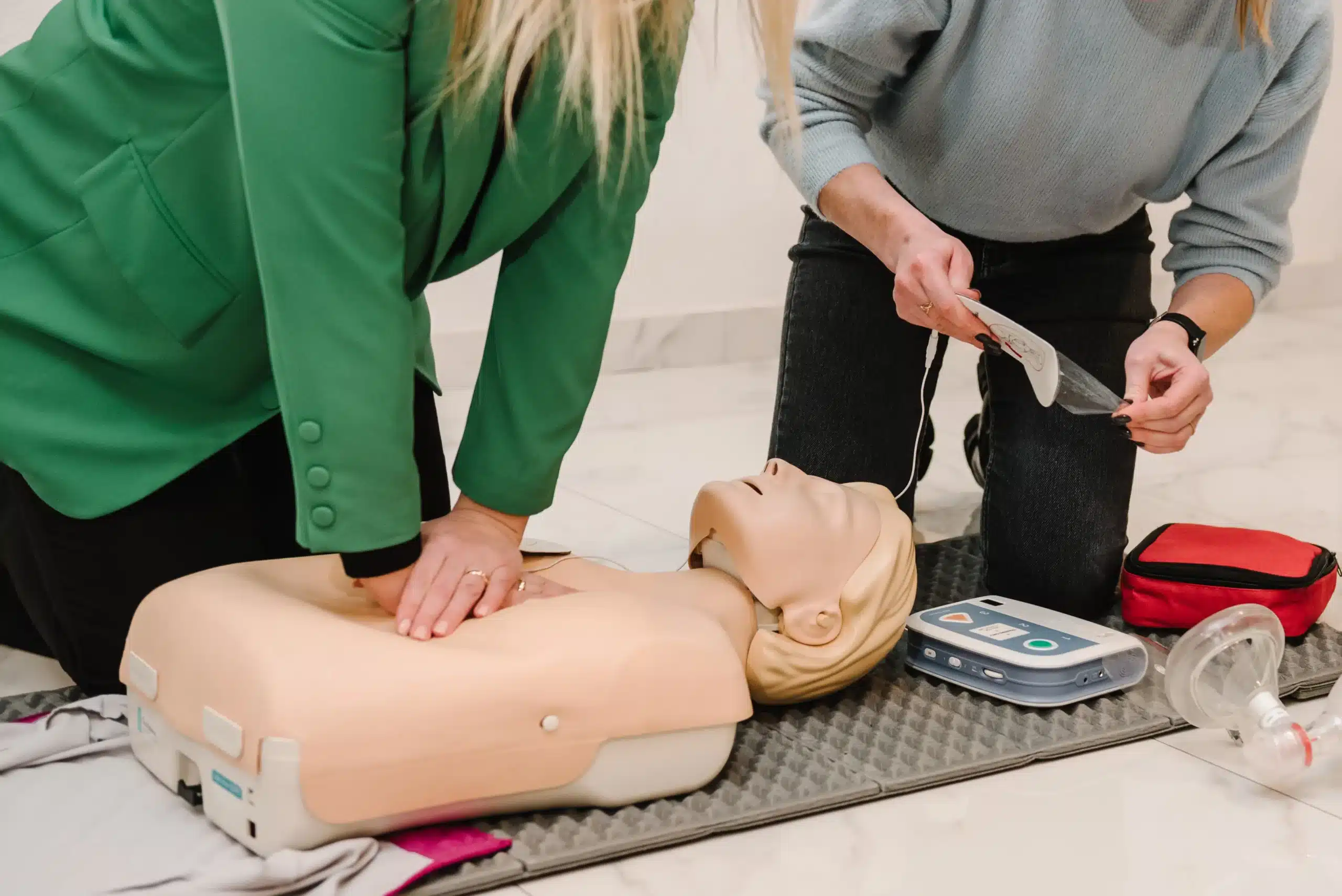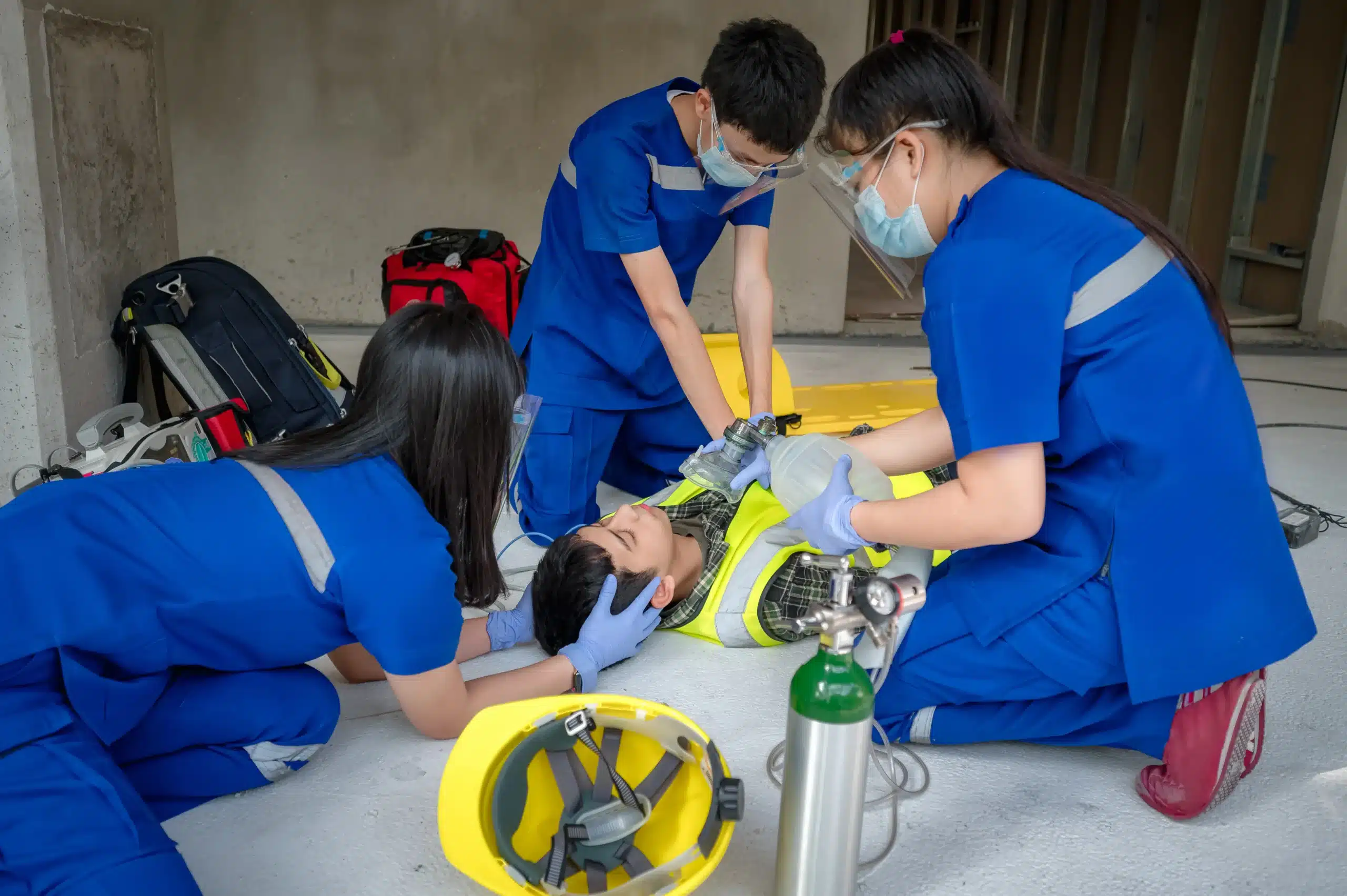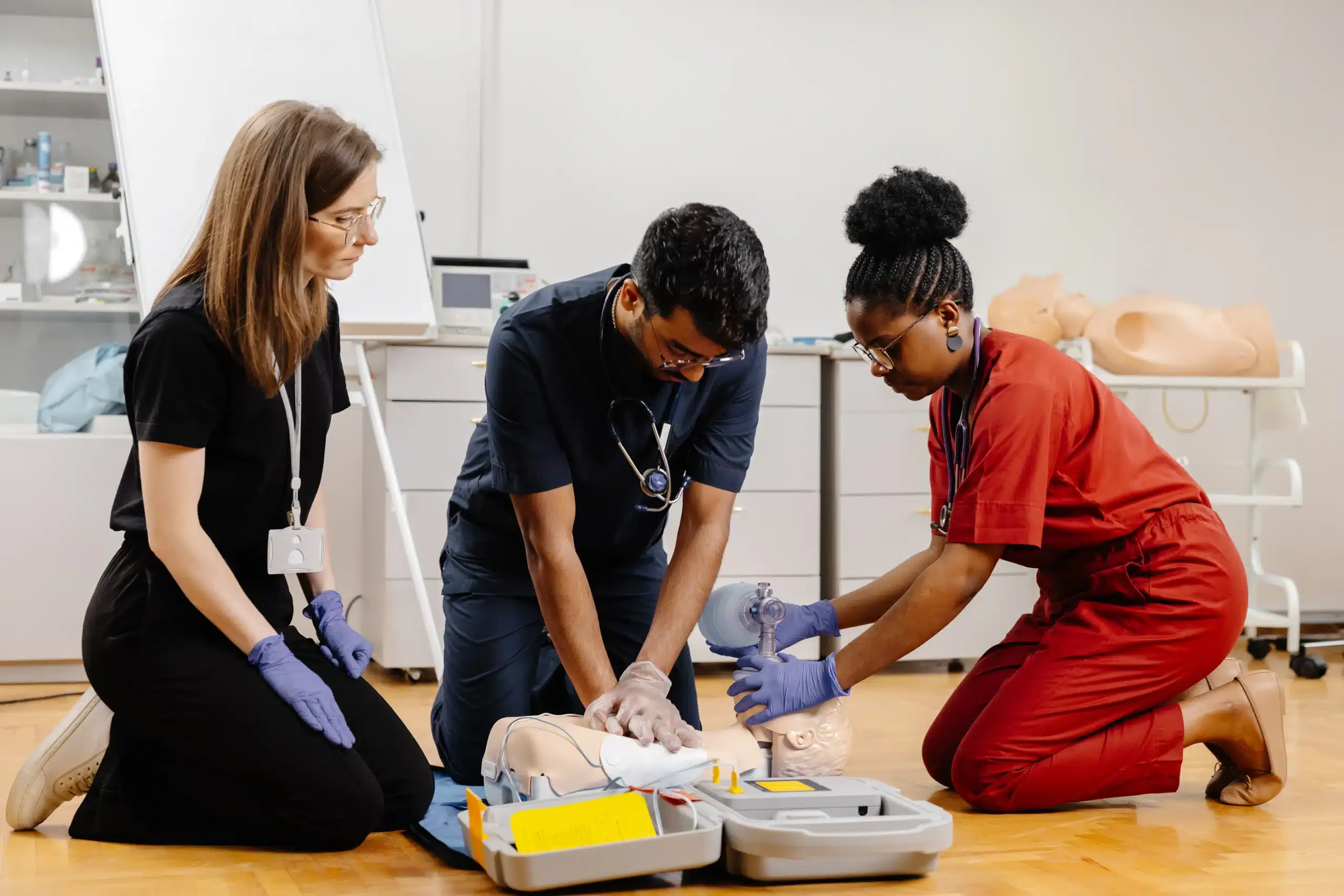Your CPR skills are invaluable, empowering you to respond effectively during medical emergencies. But even the most dedicated lifesavers need a refresher now and then. If you’re searching for CPR renewal in Antioch, this guide is your one-stop resource. We’ll explore the importance of maintaining your certification, the various renewal options available, and the costs involved. We’ll also delve into the benefits of in-person versus online training and provide a step-by-step guide to simplify the renewal process. Let’s keep your life-saving skills sharp and current.
Key Takeaways
- Stay current with your life-saving skills: Regular CPR renewal ensures you’re prepared and confident in emergencies. Find an AHA-compliant course that fits your schedule and learning style, whether online or in-person.
- Explore training options in Antioch: Several reputable centers offer CPR renewal, including Safety Training Seminars. Compare course content, cost, and location to find the best fit. Check for discounts or promotions.
- Prepare for a smooth renewal process: Confirm logistical details, review basic CPR principles beforehand, and dress comfortably for hands-on practice. Regularly refresh your skills between renewals to stay sharp and ready to respond.
What is CPR Renewal in Antioch?
CPR renewal in Antioch keeps your life-saving skills sharp. Like most certifications, CPR credentials expire. Your CPR certification is valid for two years. To stay current, renew before it lapses. An expired certification requires retaking the entire course, which takes more time. Renewal is a quicker process, focusing on refreshing essential skills and knowledge.
Why CPR Renewal Matters
Staying up-to-date with your CPR skills is crucial. It demonstrates your commitment to providing effective care in an emergency. Current training increases confidence and reduces hesitation in critical situations. Plus, guidelines and best practices change, so staying current ensures you’re using the most effective techniques. Many workplaces and organizations require valid CPR certification, making renewal essential for your job or volunteer role. Effective CPR significantly improves survival chances after cardiac arrest. For more information on CPR and its importance, visit the American Heart Association website.
Certification Requirements and Validity
When renewing your CPR certification, choose a course aligned with the latest American Heart Association (AHA) guidelines. This ensures your training meets nationally recognized standards. Safety Training Seminars offers AHA-certified courses, providing a valid certification card upon completion. See our AHA-certified PALS course for an example of our training. After completing your renewal course, you’ll receive an updated certification card, valid for two more years. For those working with infants, we also offer the American Academy of Pediatrics NRP certification. Childcare providers may find our EMSA Child Care Health & Safety course helpful. We also offer discounts for group classes.
Find CPR Renewal Options in Antioch
Finding the right CPR renewal course in Antioch is easier than you think. With several options available, you can find a class that fits your schedule and learning style. This section breaks down the types of courses and local training centers to help you get recertified.
Types of CPR Renewal Courses
Whether you’re a healthcare professional, a childcare provider, or someone who wants to be prepared for emergencies, Antioch offers various CPR renewal courses to meet your needs. You can find everything from basic CPR and First Aid to advanced certifications like ACLS and PALS. These courses cover essential life-saving techniques and provide the knowledge and skills to respond confidently in critical situations. For those looking for specialized pediatric training, consider exploring the PALS certification offered by Safety Training Seminars.
Local Training Centers
Several reputable training centers in Antioch offer CPR renewal courses. Here are a few options:
Safety Training Seminars
Safety Training Seminars is a woman-owned American Heart Association Training Center providing high-quality courses in Antioch. They offer a range of certifications, including BLS, ACLS, PALS, CPR, and First Aid. Their focus on quality instruction and convenient scheduling makes them a popular choice. They also offer discounts for group classes.
CPR Training Center
CPR Training Center specializes in ACLS, PALS, CPR, and other life-saving courses. Taught by healthcare providers, their classes offer a practical, hands-on learning experience.
Antioch CPR Classes
Antioch CPR Classes provides American Heart Association (AHA) certified courses, including CPR, BLS, ACLS, PALS, and First Aid. They are a convenient option for those seeking comprehensive training and certification.
American Red Cross
The American Red Cross offers blended learning courses, allowing you to study online and then complete hands-on training in person. This flexible approach makes it easier to fit CPR renewal into your busy schedule.
Renew Your CPR Certification: A Step-by-Step Guide
Renewing your CPR certification doesn’t have to be complicated. Follow these simple steps to stay prepared and ready to respond to emergencies. We’ll guide you through the process, from registration to receiving your updated certification card.
Register for a Renewal Course
First, find a CPR renewal course that fits your schedule and learning preferences. Safety Training Seminars offers various AHA-certified courses in Brentwood, including BLS, ACLS, PALS, CPR, and First Aid. With classes offered seven days a week, finding a convenient time is easy. Visit their website to view the course calendar and register for a class. You can also check with other local providers like the American Red Cross for more options.
Gather Required Materials and Prepare
Once you’ve registered, confirm any required materials. Some courses may require a student handbook. Check with your training center for specifics. Reviewing basic CPR principles before class is always helpful. Brushing up on the fundamentals will maximize your learning during the renewal course.
What to Expect During Class
CPR renewal courses typically combine classroom learning and hands-on practice. Expect to review key concepts like chest compressions, rescue breaths, and AED use. Instructors will guide you through various scenarios and provide feedback. Local training centers often have experienced healthcare providers teaching the courses, ensuring you receive high-quality, AHA-compliant training.
Complete Your Certification
After successfully completing the course, you’ll receive your updated CPR certification card, typically valid for two years. Keep it accessible, so you can easily show proof of your certification. AHA certification cards are widely recognized. Mark your calendar to remember your next renewal date.
In-Person vs. Online CPR Renewal: Which is Right for You?
Choosing between in-person and online CPR renewal often comes down to personal preference, learning style, and schedule. Both options have their advantages, so understanding the pros and cons of each can help you make an informed decision.
Benefits of In-Person Training
In-person CPR training provides a hands-on, immersive learning experience. You’ll work directly with a certified instructor and practice your skills on mannequins in a realistic setting. This tactile approach can be especially helpful for kinesthetic learners. Instructors offer immediate feedback, correct mistakes in real-time, and answer any questions you have. This interactive environment creates a sense of community and allows for collaborative learning. Many in-person courses, like those offered at our Brentwood location, use blended learning, combining online modules with in-person skills sessions. This lets you complete the cognitive portion at your own pace before demonstrating your skills in person. For healthcare providers needing certifications like PALS or NRP, the hands-on practice and expert guidance of in-person training can be invaluable.
Advantages of Online Renewal
Online CPR renewal offers unparalleled flexibility and convenience. You can complete the coursework anytime, anywhere, fitting it easily into your schedule. This format is perfect for those who prefer self-paced learning or have limited time for in-person classes. Online courses often use multimedia resources, like videos and interactive simulations, to engage learners. You can review materials as often as you need and move through the course at your own speed. Online renewal is often more affordable, and many reputable providers offer online CPR and first-aid certification. This accessibility makes staying current with certifications easier, even with demanding schedules.
Comparing Effectiveness and Convenience
Both in-person and online CPR renewal courses equip you with life-saving skills, but the best choice depends on your individual needs. In-person training excels at hands-on practice and personalized feedback, while online renewal offers unmatched convenience and flexibility. Consider your learning style, time constraints, and budget. If you thrive in interactive environments and value direct instruction, in-person training might be better. If you need a flexible and affordable option, online renewal could be ideal. No matter which format you choose, make sure the certifying organization is reputable and your certification meets any workplace requirements. For those looking for group discounts or options in Northern California, our discount group classes and the Northern CA CPR directory can be helpful resources. The most important thing is that you renew your certification and keep your skills sharp so you can respond confidently in emergencies.
CPR Renewal Costs in Antioch
CPR renewal is an essential investment in your skills and ability to respond to emergencies. Understanding associated costs will help you budget effectively. This section breaks down the typical price range for different CPR renewal courses in Antioch and highlights potential discounts.
Price Range for Different Courses
CPR renewal costs in Antioch vary depending on the certification level and course content. Basic CPR/AED/First Aid renewal often falls within the $25–$35 range, as reported by resources like CPR Test Center. More advanced certifications, such as BLS for Healthcare Providers, typically cost between $35 and $45. These price differences reflect the varying depth and scope of each course. BLS courses for healthcare providers, for instance, cover more comprehensive material than basic CPR/AED training. For the most up-to-date pricing, contact your chosen training center directly. Brentwood CPR Classes offers a helpful directory of CPR training providers in Northern California.
Discounts and Promotions
Many training centers in Antioch offer discounts and promotions, making CPR renewal more accessible. Look for these opportunities to save on your renewal costs. Common discounts include those for military personnel, students, or group registrations. Training centers sometimes run limited-time promotions or offer early registration discounts. Yelp can be a valuable resource for finding current deals. Also, check directly with training centers like Brentwood CPR Classes for any ongoing discounts; they often feature special offers on their website.
Prepare for Your CPR Renewal
Getting ready for your CPR renewal is straightforward. A little prep work goes a long way toward a smooth and successful recertification.
Prepare for Your Course
Before your renewal course, confirm the location and time. Safety Training Seminars offers American Heart Association courses in Antioch, conveniently located for those living in Brentwood and Pittsburg. Knowing precisely where you’re going and when helps avoid last-minute scrambling. Also, review the course materials beforehand. A quick refresher on the basics will make the renewal class even more effective. Dress comfortably—you’ll be practicing hands-on skills.
Maintain Your Skills
Your CPR certification is valid for two years. It’s essential to renew your certification within 30 days of the expiration date to avoid retaking the entire course. Regularly practicing your CPR skills between renewals is a smart move. Even a quick run-through with a friend or family member can help keep those skills fresh.
Stay Updated on Guidelines
CPR guidelines are occasionally updated to reflect the latest medical research and best practices. Choosing an AHA-certified CPR course ensures your training aligns with these guidelines and is recognized nationally, giving employers confidence in your skills. Staying current with the latest guidelines isn’t just about checking a box; it’s about providing the most effective care in an emergency.
Related Articles
- Why CPR is Crucial in Healthcare
- CPR Training in Concord: Find Right Course for You
- Online CPR Classes in Antioch: Your Guide – Brentwood CPR Classes
- ACLS Renewal in Concord: Providers & Course Options – Brentwood CPR Classes
- BLS Certification in Antioch: A Complete Guide
Frequently Asked Questions
How long is my CPR certification valid?
CPR certifications are typically valid for two years. It’s important to renew before it expires to avoid retaking the entire course.
What’s the difference between CPR renewal and taking the full course again?
Renewal courses are shorter, focusing on refreshing existing skills and knowledge. If your certification expires, you’ll need to retake the full course.
Where can I find CPR renewal courses in Antioch?
Several training centers in Antioch offer CPR renewal, including Safety Training Seminars, CPR Training Center, Antioch CPR Classes, and the American Red Cross. Check their websites or give them a call to find a course that fits your needs.
How much does CPR renewal cost in Antioch?
Costs vary depending on the course type and provider. Basic CPR renewal typically ranges from $25 to $35, while more advanced certifications like BLS for Healthcare Providers cost between $35 and $45. Check with specific training centers for their pricing and any available discounts.
What’s the best way to prepare for my CPR renewal course?
Confirm the course location and time, and review any pre-course materials. Brushing up on basic CPR techniques beforehand can be helpful. Dress comfortably for hands-on practice.



